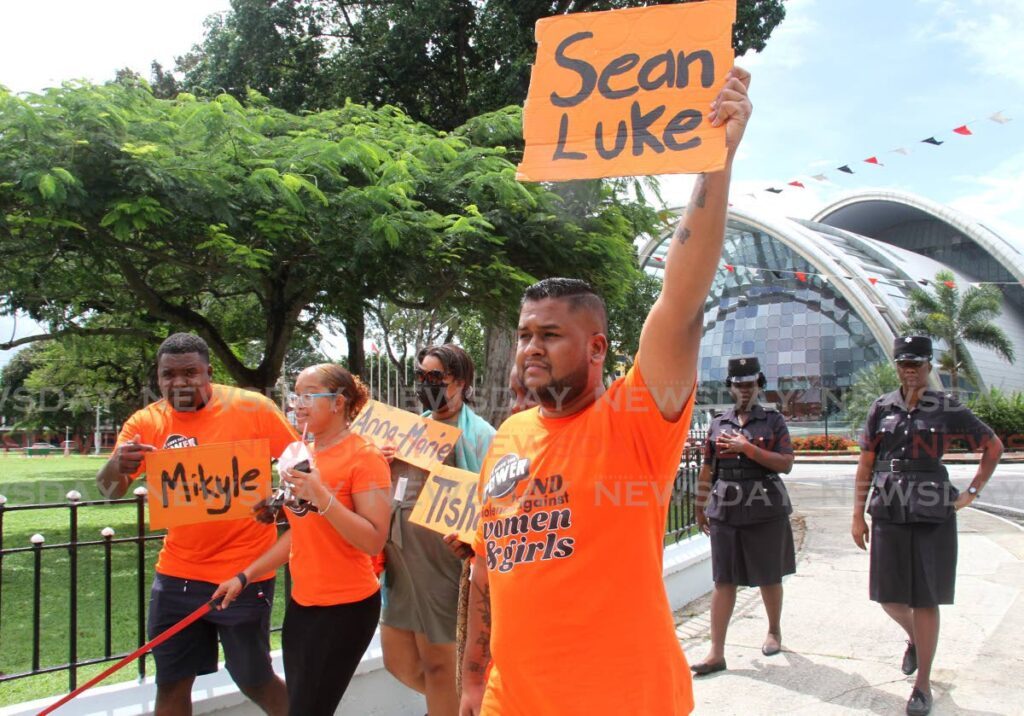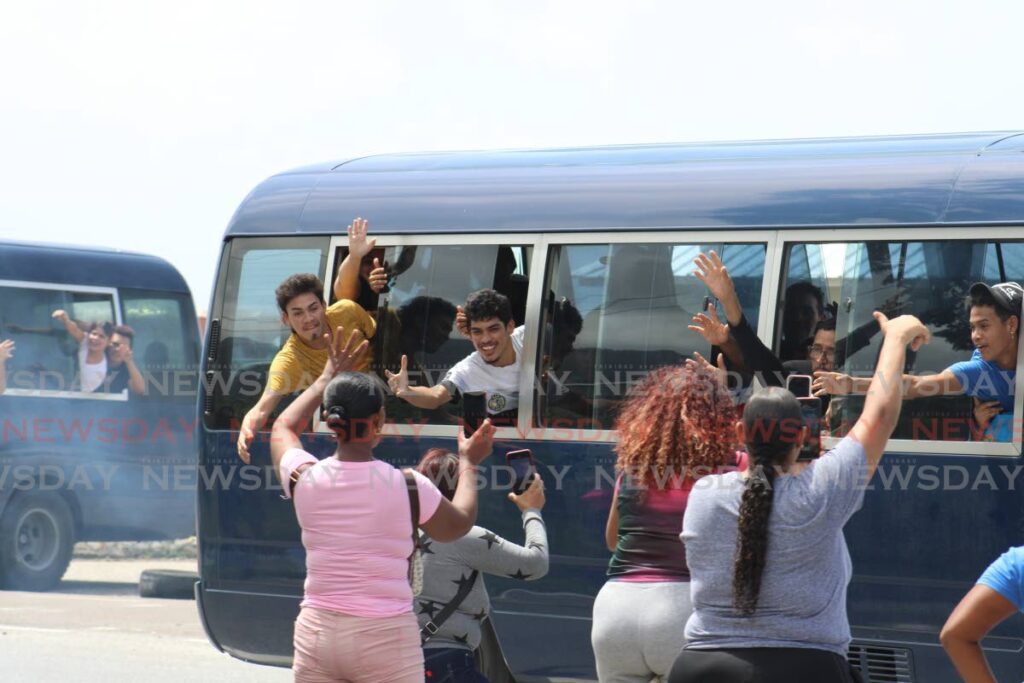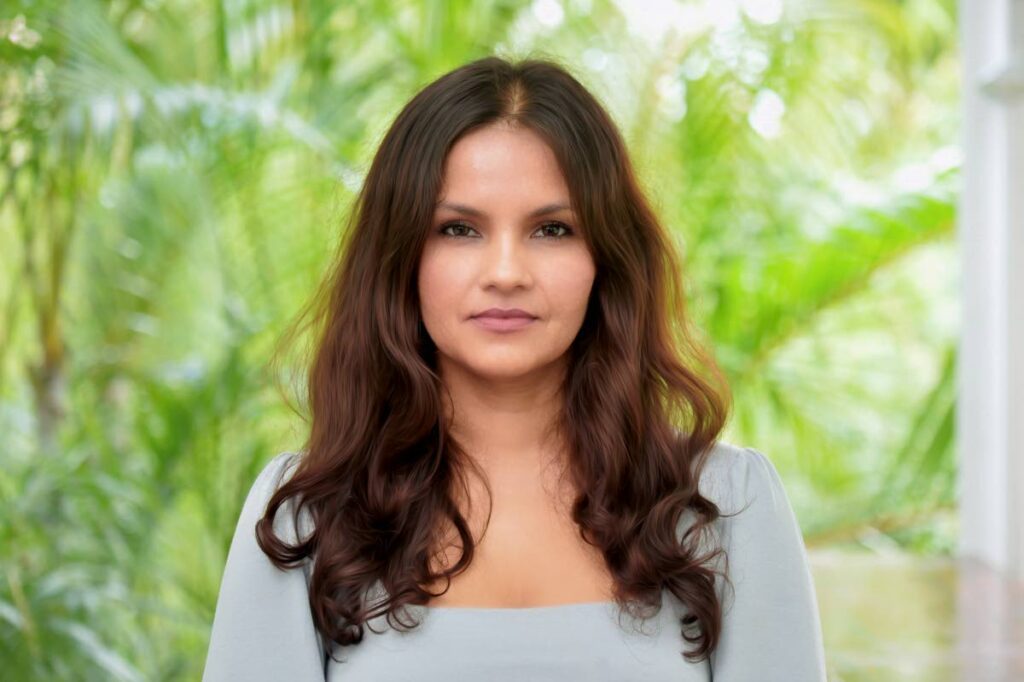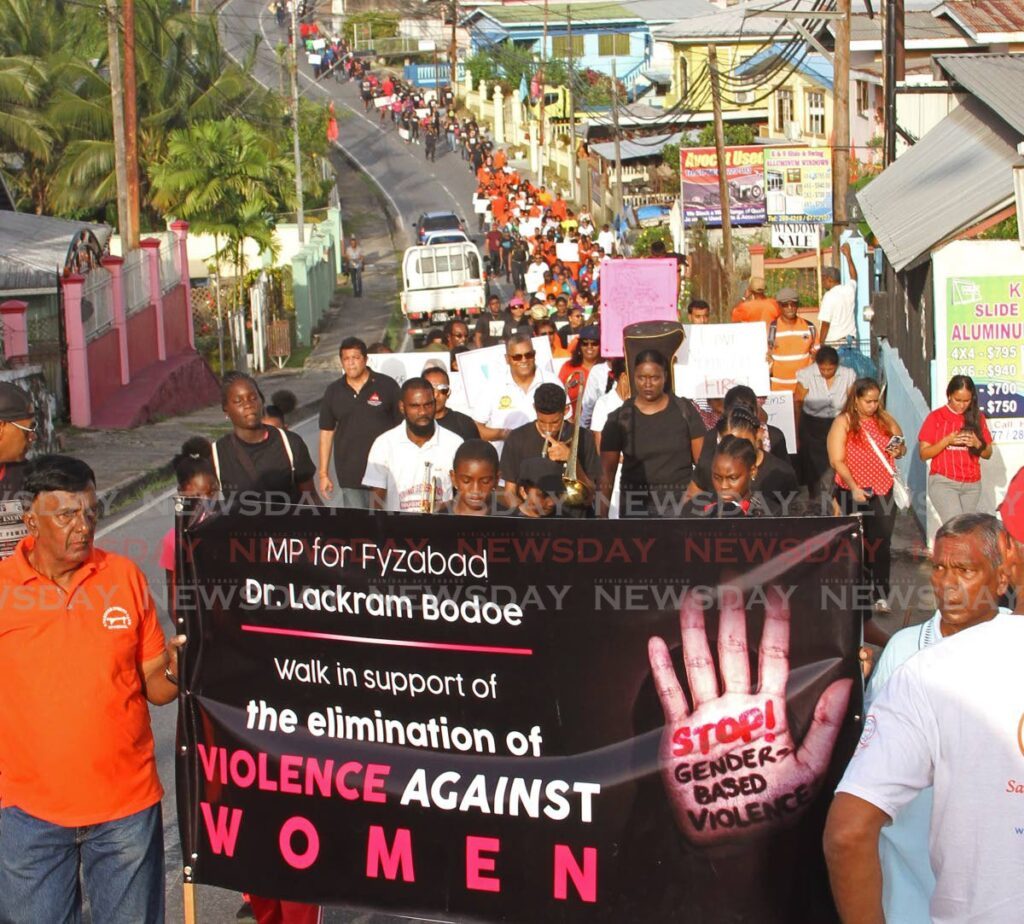Trinidad and Tobago's staggering number of human rights issues

Denise Pitcher, executive director of the Caribbean Centre for Human Rights, said Caricom should be concerned about the UN Security Council’s lack of response to the humanitarian and human rights crises in the Israel - Palestine War resulting from the geopolitical rivalry in the council.
“What would be the response of the UN Security Council if, in fact, there was an eruption of violence between Guyana and Venezuela?
Can we be confident that the UN Security Council would intervene to prevent the sort of bloodshed we're seeing in other crises throughout the world?”
Speaking to Sunday Newsday in a telephone interview on the observance of Human Rights Day, celebrated on December 10, she said a similar point was made at the Israel - Palestine War: Perspectives from the Caribbean webinar on Tuesday.
Human Rights Day marked the anniversary of the Universal Declaration of Human Rights which was adopted by the UN on December 10, 1948 in response to acts during the Second World War. The document enshrined inalienable rights to which every human being was entitled "regardless of race, colour, religion, sex, language, political or other opinion, national or social origin, property, birth or other status."
Pitcher said, “The consensus amongst the panel members was the failure by the international community, specifically the UN Security Council, being able to be more responsive to the bloodshed that’s happening in Gaza.”

It was believed there needed to be a reconstitution of the UN Security Council to either increase the number of members or rotate them. The five permanent members with veto power included China, France, Russian Federation, the UK and the US, and it was believed it made no sense they got to make decisions that affected the 193 members of the UN.
“The consensus was that there has to be some way to make it more inclusive and make it a more democratic forum for making decisions that have, literally, life and death consequences for people throughout the world.”
While, in many parts of the world, people were suffering human rights violations, Pitcher said the people of TT enjoyed a relatively fair degree of fundamental human rights and democratic freedoms including access to health care and education, and freedom of expression, speech, and movement.
“However, for a small country like TT, we have a staggering number of human rights issues – high levels of child and sexual abuse, gender-based violence and domestic violence.”
She said one of the biggest concerns for the entire population was access to justice, being able to seek legal remedy with regard to the violation of any human rights where the law governs those rights.

Access to justice, she said, was a fundamental human right yet there were many barriers to it in TT, even though the State had an obligation to set up a system in which people could access that right.
“That’s a real difficult issue and I'm not sure if the population understands how difficult of an issue that is for the average individual, but also in terms of the progress of our country and how it affects the development of criminality in TT.”
She said only a small percentage of the population enjoyed that right because legal matters may be difficult to pursue due to associated costs, delays due to inefficiencies and bureaucracy, lack of awareness of people’s rights, and lack of knowledge of how to access and navigate the judicial system.
Pitcher stressed access to justice was not just about criminal justice but also civil, political, economic, cultural and social rights.
“I think economic, social and cultural rights are the lesser known rights in terms of access to a bank account, access to housing, right to religion, the right to health and those kinds of things. I think people don't understand economic, social and cultural rights as much as they do civil and political.”
Other human rights issues in TT arose from the asylum seeking and refugee population which included human trafficking, arbitrary detention, detention and deportation and labour exploitation. Also, access to education and work opportunities remained limited for these people.
These issues, she said, developed because of a lack of a legal framework to govern the rights of migrants and refugees.
She said TT had a “mixed migration population” when it came to recently arrived Venezuelans. Some fled the general violence in their country, the humanitarian situation, human rights violations as well as political and other types of persecution, while some were economic migrants.
“Even though some of them may not meet the criteria to be recognised as a refugee, because of the dire circumstances in Venezuela, they are still deemed by the international community as in need of international protection.”
She recognised TT was a small country with limited resources and may not be able to afford to host a large population of refugees. Yet, she said an official legal framework was necessary to make the distinction between economic migrants, asylum seekers and refugees, and to offer protection to those who fall under the 1951 Refugee Convention.
In this way the latter would not be returned to a place they feared for their lives or security.
Despite its imperfections, Pitcher said TT had many positives that should not be taken for granted. And while those positives were not perfect, they could be built on.
She said TT’s sense of community – that such a diverse population managed to coexist peacefully and celebrate each other's cultures, religions and festivals – was one of its greatest achievements.

“The fact that we respect each other’s rights to cultural expression and religion, have no conflict and have co-existed peacefully is a high level of enjoyment.”
Also, TT’s democracy was “in a good place” despite being very young compared to other countries, its people had access to free education and even tertiary education was relatively affordable by international standards, and health care was mostly free.
“Those are real and important factors in enabling and empowering us to achieve a decent standard of living.”
The Universal Declaration of Human Rights outlined 30 rights and freedoms every person should have. Summarised by Amnesty International, those right are as follows:
1. All human beings are born free and equal.
2. Everyone is equal regardless of race, colour, sex, language, religion, politics, or where they were born.
3. Everyone has the right to life and to live in freedom and safety.
4. Everyone has the right to be free from slavery.
5. Everyone has the right to be free from torture.
6. Everyone has the right to be recognised before the law.
7. We are all are equal before the law.
8. Everyone has the right to seek justice if their rights are violated.
9. Everyone has the right to freedom from arbitrary arrest, detention or exile.
10. Everyone has the right to a fair trial.
11. Everyone has the right to be presumed innocent until proven guilty.
12. Everyone has the right to privacy and freedom from attacks on their reputation.
13. Everyone has the right to freedom of movement and to be free to leave and return to their own country.
14. Everyone has the right to seek asylum from persecution.
15. Everyone has the right to a nationality.
16. Everyone has the right to marry and to have a family.
17. Everyone has the right to own property.
18. Everyone has the right to freedom of thought, conscience and religion.
19. Everyone has the right to freedom of opinion and expression.
20. Everyone has the right to freedom of peaceful assembly and association.
21. Everyone has the right to take part in government and to have equal access to public service.
22. Everyone has the right to social security.
23. Everyone has the right to work, to equal pay, to protection against unemployment and the right to form and join trade unions.
24. Everyone has the right to rest and leisure.
25. Everyone has the right to a decent standard of living, including food, clothing, housing, medical care and social services.
26. Everyone has the right to education.
27. Everyone has the right to participate in and enjoy culture, art and science.
28. Everyone has the right to a social and international order where the rights in this Declaration can be fully realised.
29. We have a duty to other people and we should protect their rights and freedoms.
30. Nobody can take away these rights and freedoms from us.
Fundamental Human Rights and Freedoms in the Constitution of TT:
(a) the right of the individual to life, liberty, security of the person and enjoyment of property and the right not to be deprived thereof except by due process of law;
(b) the right of the individual to equality before the law and the protection of the law;
(c) the right of the individual to respect for his private and family life;
(d) the right of the individual to equality of treatment from any public authority in the exercise of any functions;
(e) the right to join political parties and to express political views;
(f) the right of a parent or guardian to provide a school of his own choice for the education of his child or ward;
(g) freedom of movement;
(h) freedom of conscience and religious belief and observance;
(i) freedom of thought and expression;
(j) freedom of association and assembly; and
(k) freedom of the press.

Comments
"Trinidad and Tobago’s staggering number of human rights issues"